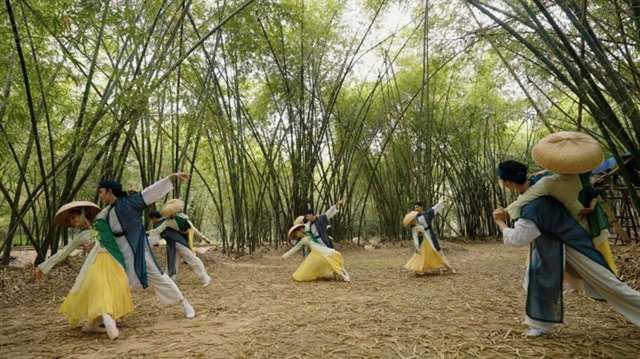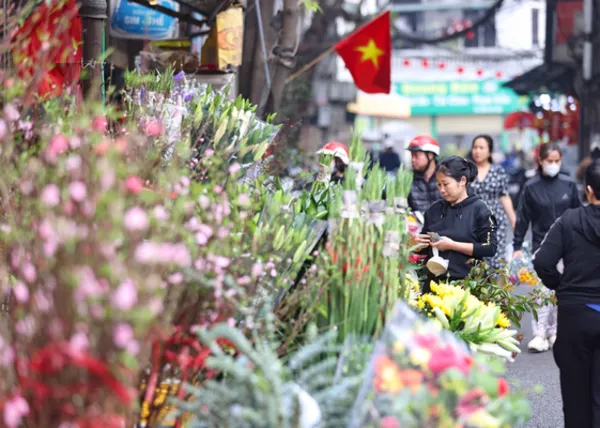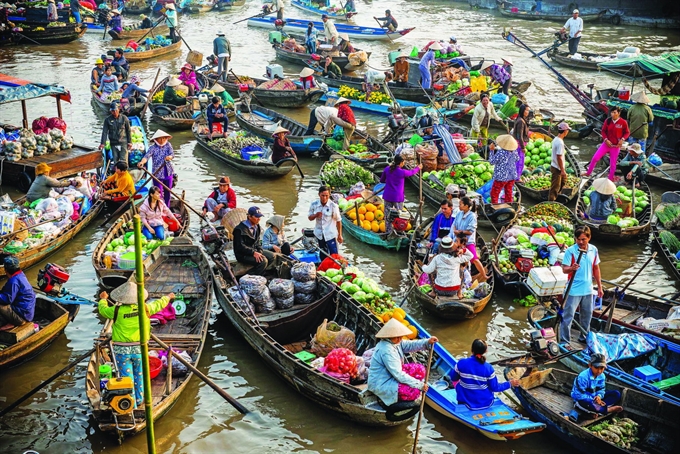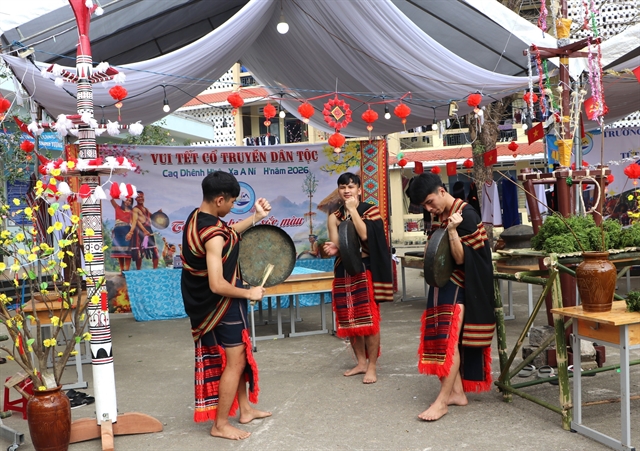 Life & Style
Life & Style

The Ministry of Culture, Sports and Tourism on July 9 awarded a certificate recognising Cái Răng Floating Market in the Mekong Delta city of Cần Thơ as a national intangible cultural heritage site.
 |
| Boat traffic: Cái Răng Floating Market in the Mekong Delta city of Cần Thơ has been recognised by The Ministry of Culture, Sports and Tourism as a national intangible cultural heritage site. — Photo dulichvn.org.vn |
HCM CITY— The Ministry of Culture, Sports and Tourism has awarded a certificate recognising Cái Răng Floating Market in the Mekong Delta city of Cần Thơ as a national intangible cultural heritage site.
The Cái Răng Floating Market is on the 185-kilometre Hậu River which is a part of Mekong Delta river basin.
The market is a top tourism destination in Cần Thơ City, where local and foreign tourists go to learn about the colourful life on the river.
The UK’s Rough Guide has just elected the Cái Răng Floating Market as one of ten most impressive markets in the world.
The market, which has thrived for over a century, has been a centre for commerce in the city and its neighbouring provinces, such as An Giang, Vĩnh Long, Đồng Tháp, Trà Vinh and Sóc Trăng.
They traditionally sell all kinds of fruits and vegetables, and recently added coffee, breakfast dishes and even lottery tickets.
On boats, products are hung on bamboo poles so tourists and locals can easily know which products each boat is selling.
At 5am to 6am, the market is filled with 350 to 400 boats carrying tourists, local people and vendors in a rush.
Lê Thành Phương, 56, of Vĩnh Long, told Việt Nam News that he has bought and sold fruits, mainly pineapples, on boats at the market for 21 years.
In the past, Phương drove boats from his province to farms in other provinces to buy fruits and then returned to the market to sell. He also sold the fruits to storehouse owners in the provinces of Sóc Trăng and Cà Mau.
“I did not have land for cultivation. That was the reason why I chose selling fruits in the market. I did 10 such trips each month. When I sold half of the amount of fruits on the boat, I earned profits. On only one day did I sold all my fruits.”
However, gradually, difficulties began to appear because more and more people were selling fruits as he was.
“Now it takes two or three days to sell everything,” Phương said.
Preservation
Cần Thơ City’s authorities in April approved to preserve and develop the market.
Under the preservation project with total capital of VNĐ63 billion (US$2.8 million), marking buoys will be installed to limit boats for anchoring.
Wharfs, public toilets and 5,000-metre warehouses for storing products to serve tourists will also be built for the market.
Garbage discharged by residents living on boats near the markets or sellers will be paid more attention to in order to ensure hygiene.
The project will be carried out by the city Economics and Society Institute.
According to the Cần Thơ City’s Department of Culture, Sports and Tourism, more than 931,000 local and foreign tourists came to the city in the first half of this year, an increase of 22 per cent compared to the same period of last year.
This increasing number of tourists raised the total tourism revenue in Cần Thơ City to nearly VNĐ1 trillion ($44 million).
Most tourists to Cần Thơ City chose tours that include the Cái Răng Floating Market.
Cái Răng Floating Market Tourism Day on Saturday was also launched to advertise tourism.
On that day, 20 models of boats with fruits and other farm produce were displayed. A photo exhibition highlighted the market’s beauty. A boat race and the southern cultural heritage traditional music Đờn Ca Tài Tử was also performed.—VNS




